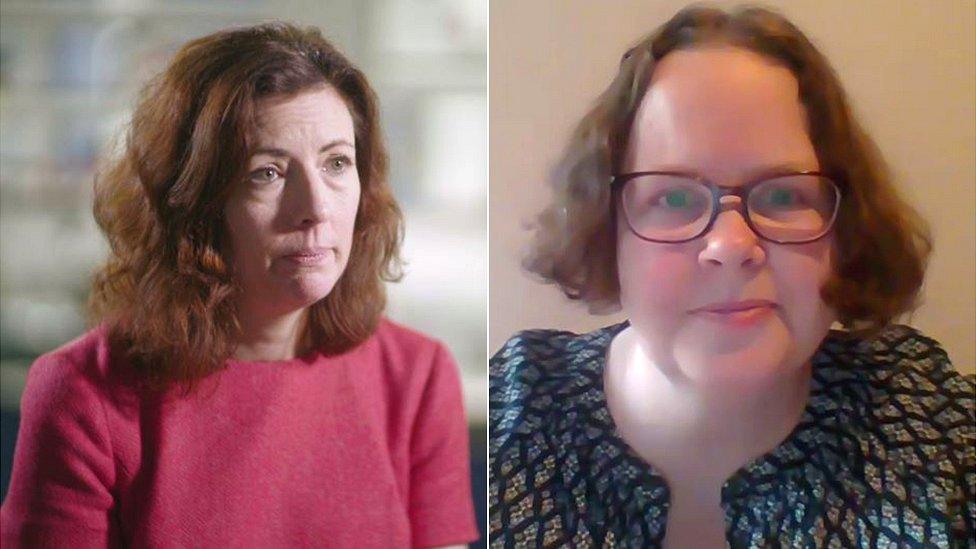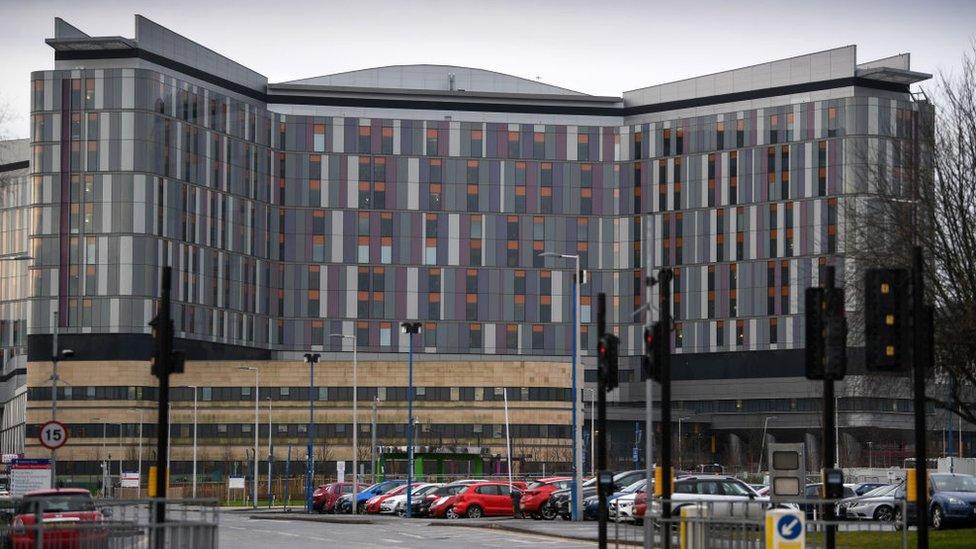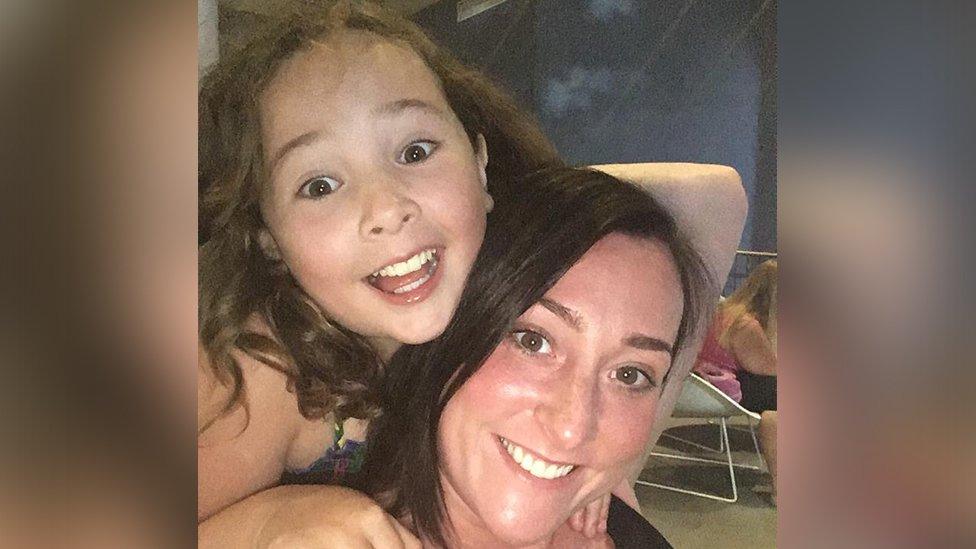Senior doctors criticise Glasgow hospital review
- Published

Dr Christine Peters (L) and Dr Teresa Inkster both believe parts of the report are misleading
Parts of an independent investigation into problems at Scotland's biggest hospital should be retracted, two senior doctors have told the BBC.
Consultant microbiologists Dr Teresa Inkster and Dr Christine Peters said sections of the report were inaccurate and misleading.
The women both worked as infection control doctors at the Queen Elizabeth University Hospital in Glasgow.
The independent review team said it stood by its report.
The doctors spoke publicly for the first time to BBC Disclosure's The Secrets of Scotland's Superhospital about their concerns around patient safety at the hospital.
Just a month ago, a government-commissioned independent review found that vulnerable patients were placed at increased risk because of substandard water and ventilation systems at the hospital.
But the review said there was no "sound" evidence that patients died as a result.
The consultants wrote to the independent review to express concern that they had not been invited to provide evidence around infection incidents at the hospital, or to respond to personal criticisms in the investigation.
Dr Inkster was the lead infection control doctor between 2016 - 2019.
During that time the children's cancer wards were forced to close because of a spike in unusual infections. The wards remain closed while the water and ventilation systems are upgraded.
Dr Inkster also led the investigation into two cases of Cryptococcus in 2019, a fungal infection associated with pigeons droppings. Two patients died after contracting the fungal infection while being treated at the hospital.
Dr Inkster says she was not given the opportunity to respond to personal criticism or to speak to the external microbiologist investigating from the review.
She told the BBC: "I just find that incredulous... it was an evolving situation and new information coming to light all the time.
"So, I was interviewed initially in October and I would've expected to have several follow-up interviews on that new information that was coming to light because I had been that infection control doctor, chairing those incident management teams.
"Someone who was essentially a key witness."

The independent team who reviewed the incidents at the hospital said it stood by its findings
Dr Inkster said she was not re-interviewed to discuss the incidents and believed this had a "significant impact" on the report's conclusions.
"There are significant omissions there and also in accuracy, particularly in relation to the science," she added.
The independent review found no sound evidential basis to link pigeons in the building to the infection or subsequent deaths.
'Lack of engagement'
Dr Christine Peters is clinical lead for microbiology at the Queen Elizabeth University Hospital. She said she was interviewed in late November, but says she was only given a copy of her statement after the report had been published.
"I had a lot of evidence and at one point I was aware that I was sending in a lot of evidence and I was told they already had a preponderance of evidence and they weren't particularly looking for any more," she said.
"So it was hard at the beginning to really comprehend what they were looking at and I was told the culture was not one of the areas they were looking at, or bullying or sexism. And certainly I wasn't submitting evidence around that."
The doctors say they received a response to their 31-page letter on Wednesday evening, the day when the review team wound up.
They say it is extremely disappointing that the team is not willing to engage with them any further.
A spokesperson for the Queen Elizabeth University Independent Review said: "Our report did not directly criticise whistle-blowers, but relayed concerns about their behaviour by their colleagues.
"We have concluded our work, and stand by the report."
Both doctors say patient safety has been their motivation for speaking out.

The death of Milly Main at the Royal Hospital for Children, part of the same hospital campus, has been referred to the prosecutors
The procurator fiscal is investigating the two Cryptococcus deaths as well as that of 10-year-old Milly Main who died after contracting an infection while being treated for cancer.
Families of children being treated on the cancer wards also wrote to the review team to express concerns about its conclusions.
A separate investigation is reviewing more than 80 cases of infection on the paediatric haemato-oncology ward. Its publication has been postponed because of coronavirus.
'Action plan'
The health board has apologised to families who still have questions. It says it has offered to meet them and remains committed to supporting them.
A public inquiry into the Queen Elizabeth University Hospital and the Sick Children's hospital in Edinburgh is due to start next month.
NHS Greater Glasgow and Clyde (NHSGGC) said in a statement: "The independent review by Dr Fraser and Dr Montgomery provides a comprehensive assessment of issues that arose with the design, build, commissioning and maintenance of the Queen Elizabeth University Hospital and the Royal Hospital for Children.
"We take seriously the issues highlighted by the report. We have acted promptly to scrutinise it findings, which we fully accept, and to develop an action plan to address the recommendations for the board.
"As the inquiry was independent of NHSGGC, any questions about the report are a matter for the independent review team."